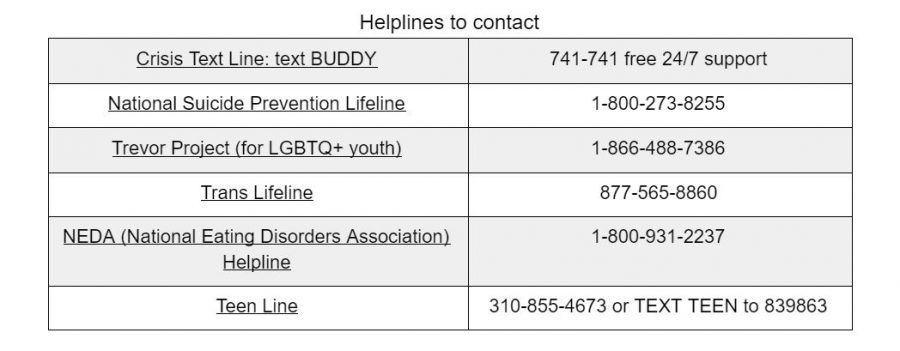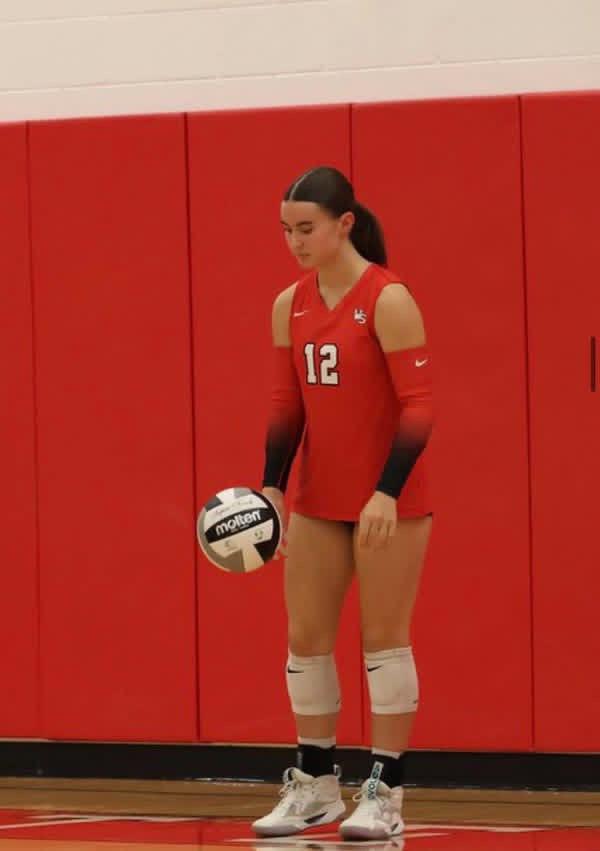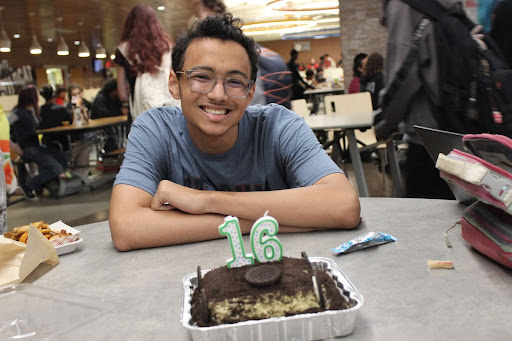Mental health crisis affecting teens across America
March 18, 2021
Teenagers are being diagnosed with mental health disorders at a record rate, and suicide is the third leading cause of death among teens. This is a crisis, and it’s getting worse.
According to the World Health Organization, 10 – 20% of adolescents experience mental health conditions. Adolescents with mental health conditions are particularly vulnerable to social exclusion, discrimination, stigma (affecting readiness to seek help), educational difficulties, risk-taking behaviours, and physical ill-health, the WHO reports.
School psychologist Sara McCrea stated, “In America, we have too many children experiencing trauma (poverty, addiction, abuse/neglect, etc.). We are also in crisis with this age group due to a lack of resources related to mental health support.”
Psychiatry services are often near 6 month wait lists, insurance obstacles, finding a good counselor that teen connects with, availability, McCrea added.
“I believe that there is a teenage mental health crisis. I believe that more and more teenagers are experiencing mental health issues and our government and society won’t fully accept that,” an anonymous* student stated.
Half of all mental health conditions start by 14 years of age but most cases are undetected and untreated the WHO reports.
Teenagers are more prone to experiencing a mental health condition for many reasons. “In adolescence you undergo the second biggest brain growth period, with that comes a lot of chaos with your body and brain trying to catch up, at the same time there are more pressures with adolescence,” school social worker Azalea Tang stated.
Adolescence is a crucial period for developing and maintaining social and emotional habits important for mental well-being. These include developing coping, problem-solving, and interpersonal skills. Supportive environments in the family, at school and in the wider community are also important, according to the WHO.
The most common mental health condition experienced across all ages is anxiety. According to the National Institute of Health, nearly 1 in 3 of all adolescents ages 13 to 18 will experience an anxiety disorder, these numbers have been rising steadily.
Anxiety is common among teenagers due to many factors. Some of these factors include high expectations to succeed, the influence of social media, the world environment with political tensions, and the pandemic, according to HealthyChildren.org.
Another common mental illness is depression. It’s estimated that one in five adolescents from all walks of life will suffer from depression at some point during their teen years. However, while depression is highly treatable, most depressed teens never receive help, according to Helpguide.org.
There are many things that teens and the people around them can do to manage anxiety, depression and other mental illnesses, and many things that can be done to treat it professionally, including talk therapy and medication if necessary.
“There comes a point where you have to learn that simply listening and not trying to fix the problem without being asked can really help people; and if you do have a friend that needs professional help, you can offer to go with them to go see the guidance counselor or to be by their side when they ask their Guardian,” Sophomore Sara O’Neil stated.
“Therapy and medication have really helped me cope with my mental illness and it makes me feel safer,” the anonymous student stated.
If left undiagnosed and untreated, depression and anxiety can lead to suicide. Suicide is the third leading cause of death is adolescents age 15 – 19 the WHO reports.
Men are over 3.5 times more likely to die from suicide, the American Foundation for Suicide Prevention reports.
“In some cases, a recent stressor or sudden catastrophic event, or failure can leave people feeling desperate, unable to see a way out, and become a tipping point toward suicide,” acording to Psychiatry.org.
Every suicide is preventable. If someone indicates they are considering suicide, listen and take their concerns seriously. Don’t be afraid to ask questions about their plans, let them know you care, and they are not alone. Encourage them to seek help immediately from a knowledgeable professional, and don’t leave them alone, according to Psychiatry.org.
Adults need to do their part to help teens with their mental health. “Parents and teachers can be a listening ear for students who need it. Things that you can say that will help are telling us you’re proud of us, that we’re brave and strong, that we can do anything, that we’re loved,” the anonymous student said.
There are things that adults can tell teens, and that teens can tell their friends that can really help. “You’re doing great, you are great, you’re so strong and I’m proud of you,” the anonymous student stated.
“You’re stronger than you think and you’re not alone,” O’Neil stated. “You don’t have to go through life trying to muscle through on your own, and you’re not accepting defeat by getting help.”
While adults do need to check in on their teens, teens also need to check in on each other. “To help others I’ve been there for anyone who needs me even if we aren’t friends,” the anonymous student stated. “To make sure people around you are okay, be calm and open about your feelings and ask about theirs even if it’s hard just be there for them.”
Ask your friends how they’re really doing, and don’t just ask general questions, O’Neil said, “You have to actually care and be invested in what they have to say, If you are really concerned, reach out to a trusted adult,” she added.
There are so many good options for teenagers who need help to get it. “Help friends connect with school support services, at South we have two School Social Workers, one School Psychologist and four School Counselors available in the Student Support Center,” McCrea stated.
Eating healthy, exercising, relaxing, and developing healthy coping strategies, are all ways to improve mental health, McCrea said. “Help is available, just ask and share with trusted adults, accept help, and call a hotline [if necessary],” she added.
Reaching out is the first step to getting better, if you need to then reach out to someone you trust, a friend, family member, teacher, guidance counselor, or anyone else. People do care about you, and there is hope. Always remember to check in on your friends and everyone around you.
*Students chose to remain anonymous, the Scribe honored their requests to maintain confidentiality.






